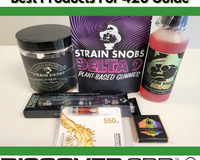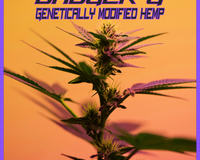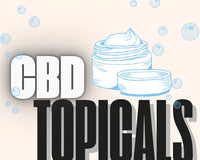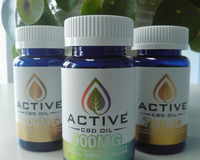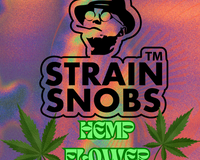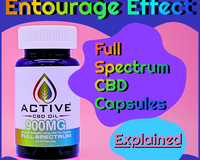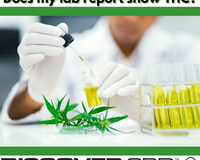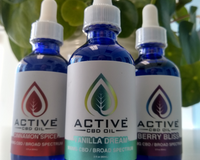The Farm Bill was passed in 2018 making hemp derived CBD products federally legal in the U.S. and since then you may have noticed the rise in popularity of CBD infused products. Many people are turning to CBD use for it's potential health benefits. It has even become a preferred method of treatment for those wanting to avoid harsh pharmaceuticals to rather opt for hemp's naturally occurring compounds. Upon beginning your CBD journey, you will need to do some research in order to find the appropriate CBD products for your unique body chemistry as well as the kind of relief you looking to achieve. The most important place to start is discovering which consumption method is right for you. This will determine how quickly CBD will absorb, and how long CBD stays in your system.
Methods Of Consumption- how long ingested CBD products stay in your system
Believe it or not, how you consume CBD has several factors in determining how long CBD stays in your system as well as how long CBD will take to enter your system. Knowing these key factors will help to determine what CBD product is right for you. Some customers prefer CBD products of higher concentration with more CBD, while some customers would rather a lighter dosage that can be more convenient for consuming CBD throughout the day. These options can be more or less effective depending on the individual. The methods listed in this section of the article will help guide you towards CBD products that will be of the most assistance to your needs based on how long CBD takes to enter your system and how long CBD remains in your system.
Sublingual Consumption
This is one of the popular methods of consuming CBD for any condition. This option comes in the form of a CBD oil (usually containing a high CBD concentration) that is administered underneath the tongue. Because of the high amount of exposed blood vessels underneath the tongue, this method provides the most rapid absorption by the blood by absorption through mucus membranes allowing the body to absorb the max amount of CBD . When held under the tongue for about 60-90 seconds before swallowing, the CBD oil will only take about 15-20 minutes to absorb and will stay in your system for around 4-6 hours.

Edible Consumption
This common method includes any products that are swallowed, like CBD gummies or CBD oil capsules. These types of CBD products are absorbed through the digestive tract and this affects how fast CBD will enter the bloodstream. Because CBD edibles must go through the digestive system, once the CBD reaches the stomach it must be metabolized by the liver before it can reach the bloodstream. This actually prevents CBD from being maximally absorbed into the blood. CBD products, like gummies, have the least effective absorption rate and take much longer to be absorbed (around 45 minutes to an hour) but produce effects than last much longer than other CBD products (about 8 to 10 hours). This is a popular method for customers who need longer lasting relief for ailments like pain, trouble sleeping, or daily stress.
Inhalation
When CBD is inhaled either through smoking CBD or vaping CBD, it is absorbed through the lung membrane and directly into the bloodstream. Effects will be almost immediately noticeable as this method takes less than 1 minute to fully absorb. This makes the inhalation method popular among customers with anxiety, migraines or other ailments that need instant relief. However, because this method is the first to reach your bloodstream, it will also be the quickest to exit your body. This does not make it an ideal method of consumption for customers with chronic pain, as it will need to be frequently re-dosed throughout the day.

Is CBD detectable by a drug test?
Many customers are turning to CBD because they're looking to gain from the potential benefits that come from the cannabis plant without the intoxicating effects that come from the THC. Some individuals may want to avoid THC because they have adverse reactions that make them uncomfortable, but some may need to avoid THC due to drug screening. Some are even hesitant to try CBD for fear of a positive drug test result. If you have an upcoming drug test, it's important to know what kind of CBD to consume, and what products to avoid.

When beginning your CBD journey, it's imperative to familiarize yourself with the differences between the three main types of CBD: Full spectrum CBD, Broad spectrum CBD, and CBD isolate. Full spectrum CBD contains all the naturally occurring cannabinoids including the trace amounts of less than 0.3% THC that is legally allowed to be sold in a hemp derived CBD product. Broad Spectrum CBD, however, contains all the naturally occurring cannabinoids but the THC has specifically been removed. Both Full and Broad spectrum CBD provide what's referred to as The Entourage Effect- this is where all the cannabinoids work at their highest potential because they're all present and working together. CBD isolate products do not provide The Entourage Effect.
In spite of CBD being derived from the cannabis plant, most drug tests screen for the active psychoactive compound in Marijuana, THC, and cannot detect CBD on it's own. However, a full spectrum CBD product does contain < 0.3% of THC. While this isn't typically enough to cause psychoactive effects, in some people this can be just enough for a drug test to detect THC metabolites. The type of drug test could also determine how long CBD remains visible.
Urinalysis
The most common kind of drug test is a urine test where the window of detection can vary depending on the person and the dosage amount/frequency. There is scientific evidence that indicates certain tests can detect CBD in urine for an extended period of time; however, it's critical to consider that most urinalysis administered by employers or probation officers use what is called a 5 panel drug screen that only test for THC, Cocaine, Amphetamines, Phencyclidine, and Barbiturates. A 5 panel drug test, as a general rule of thumb, can detect THC for up to as long as 15 days from the last administered dose, although it has been known for heavy long term users to fail a urinalyses even after a month since their last use.

Hair Follicle Testing
Hair tests are known for detecting drug use over an extended amount of time, Once a substance is used and absorbed into the blood then it can then be absorbed into the hair follicle. As discussed above, most drug tests aren't designed to pick up CBD specifically, but most are designed to look for THC. The longevity of a hair follicle test could make traces of THC detectable for up to 3 months from the most recent usage.
Routine Bloodwork
Blood tests aren't as common as a urine test for detecting substances and are only typically only used in situations where recent drug use is suspected. Blood tests can only detect drugs that are currently in the bloodstream as opposed to detecting metabolites (breakdown products) like a urinalyses drug screening. While there's no guarantee CBD will not show up on blood testing, CBD will not generally show up on routine blood work. CBD is ultimately not a concern as bloodwork is typically only used to detect disease or illicit drugs. If someone wanted to screen for CBD they would need to obtain a specific test for that purpose. Bloodwork, however, can detect THC metabolites but due to how quickly THC exits the bloodstream it is only detectable for only about 5 hours after being administered.
Saliva Mouth Swab
Oral fluid tests use saliva to detect drug use, but they can also use other fluids or mucosal cells from the lungs, throat, or nasal passages. Once drugs enter the bloodstream, they are available for detection among all these fluids, regardless of how the substance is consumed. Oral swabs are not the most common form of drug testing as they only detect substances through a 48 hour window from the time of consumption. Drugs will usually be detectable using this method about 30-60 minutes from consumption. Similarly to other drug screenings discussed, CBD most likely will not show up in an oral swab test, however, saliva testing is very accurate at detecting THC even at the less than 0.3% margin. Even small amounts of THC could pose a risk for a false positive when testing saliva. Consider using a CBD isolate product free of THC or take a break from using CBD for about 3 days leading up to an oral drug screening.
How to safely avoid THC or positive drug test results:
Most drug screenings aren't designed to pick up CBD and these days CBD is almost universally accepted. However, if your job or living situation requires you to undergo drug testing, it is not only critical to know what kind of CBD products you're using but also to buy CBD from a reputable distributor. Reasons for a failed drug test can include mislabeling of products or cross contamination of CBD products. To avoid CBD products that may give you a positive drug test result you will want to make sure the product is THC free and not Full Spectrum but you will also need to do some research to make sure the company you're purchasing from is legitimate. Assure that the CBD oil in question is extracted from a industrial hemp plant supply and is not low-quality. Don't be afraid to ask your CBD provider questions about how it's processed and the likelihood of THC cross contamination. A reputable CBD business will be able to easily answer these questions and put your mind at ease.




